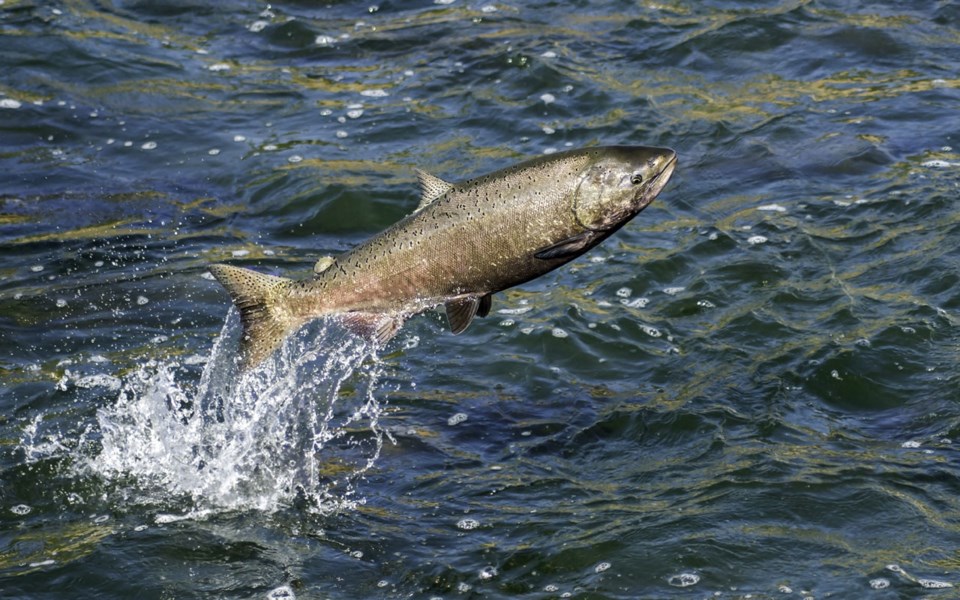[Editor’s note: This letter was addressed to the federal fisheries minister Bernadette Jordan and shared with Pique.]
For the past two years, your department has prevented the public fishery from keeping any Chinook in critically important southern B.C. salt and freshwater angling areas, even when no Fraser River Chinook stocks of concern are present. Furthermore, between April 1 and July 31, keeping abundant U.S. hatchery Chinook has also been off limits in areas where they make up a very high percentage of the Chinook stocks present.
These actions have had devastating consequences for the public fishery. Many hard-working Canadians in the public-fishing sector are now without jobs and the infrastructure that supports angling is struggling. COVID-19 has magnified these social and economic impacts.
In December 2019, Prime Minister [Justin] Trudeau described your mandate as follows: “As Minister of Fisheries, Oceans and the Canadian Coast Guard, you will lead the Government’s work to sustain and rebuild the fisheries, and ensure that they remain healthy for future generations, while providing important economic opportunities to Canadians and coastal communities.”
In early 2020, the Federal Fisheries Minister’s Sport Fishing Advisory Board submitted a fishing plan that included opportunities to catch and keep abundant Chinook salmon (details at publicfisheryalliance.ca/open-letter-background). It was developed with Department of Fisheries and Ocean (DFO) staff specifically to avoid wild Fraser River stocks of concern using DFO’s latest scientific data. It also offered a minimal, but sustainable, opportunity for the public fishery during these extraordinary times.
Yet, your department refused to implement the entire proposal, devastating Georgia Strait, Juan de Fuca Strait and lower Fraser River public fisheries. Not adopting this fishing plan defies logic, runs contrary to science-based fisheries management and to your mandate.
Specific Fraser River Chinook stocks are undeniably in trouble. The Public Fishery Alliance (PFA) strongly supports the immediate implementation of a comprehensive recovery program. The B.C. angling community has been pursuing this objective with your department for 15 years. Yet, since 2008, increased fishing restrictions including closures are the only tools the department has used.
The recovery so far, is a wretched failure.
The PFA recognizes Fraser Chinook recovery will take many years. We also understand recovery of these wild Chinook is attainable, as is providing sustainable fishing opportunities without detriment to stocks of concern. These dual objectives are critically important. Our sector must have some form of meaningful access to Chinook stocks that are not in trouble, in order to maintain hope for surviving these extremely difficult times.
We do not comprehend your unwillingness to follow your mandate. The ban on keeping hatchery-marked, or abundant Chinook defies logic at times and in areas like Howe Sound, Lower Georgia Strait and others identified in the Sport Fishing Advisory Board Proposal where there is zero evidence of the presence of stocks of concern.
The public fishery must be allowed to retain Chinook in these areas. Anglers should also be able to keep U.S., hatchery-produced Chinook in Juan de Fuca Strait during April and May in 2021 and elsewhere if abundant hatchery Chinook are present.
These fisheries are defensible because:
• This fishing plan allows anglers to keep Chinook in areas where weak runs of Fraser River Chinook do not occur based on decades of DFO data.
• Retaining identifiable hatchery Chinook and releasing wild Chinook produces a known conservation benefit. This conservation and fishery-saving tool is currently in use in Washington state.
• Hatchery Chinook account for greater than 70 per cent of the salmon present in JDF in April and May and it has been identified as a viable fishery candidate.
Wherever the 2019 and 2020 Chinook public fishery restriction applied, no coded wire tags were turned in, significantly compromising data recovery programs. Allowing anglers to keep hatchery Chinook will result in the recovery of coded wire tags for critical scientific assessment.
Continuing your department’s heavy-handed and overly broad Chinook regulation for a third year will systematically dismantle the public salmon fishery.
The PFA strongly recommends your department allow anglers to keep Chinook as described. Failure to do so reinforces the common view that science-based fisheries management and your mandate letter from Prime Minister Trudeau are not guiding your actions.
Canadians deserve to know how your department operates and where it stands with respect to their interests, especially as a general election seems close at hand.
Christopher Bos //Public Fishery Alliance




